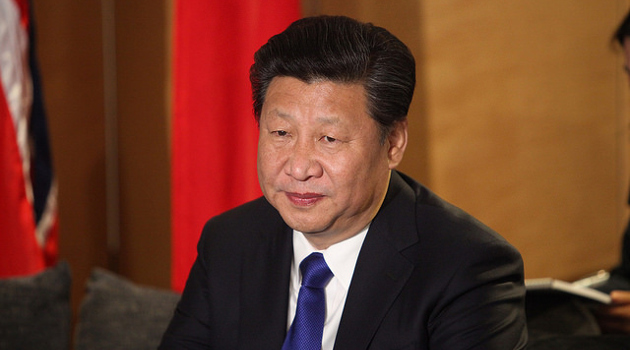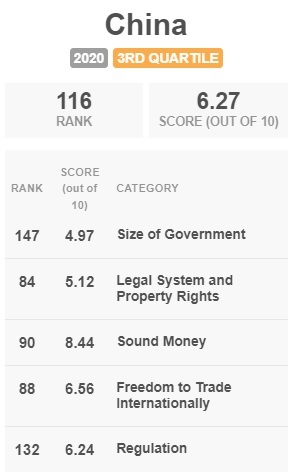Since I’ve been warning for more than a decade about weaknesses in China’s economy, I’m not surprised by the surge in stories about that nation’s grim economic outlook.
The problem is statism.
To be more specific, China suffers from excessive government. According to Economic Freedom of the World, it gets bad scores in most categories and awful scores for regulation and size of government.
Is Chinese economic policy as bad as it was under Mao? Of course not, but the partial reforms that began more than 40 years ago were akin to a student boosting his grade point average from F to D. Positive, but inadequate.
What China needs is a second (and much bigger) round of pro-market reforms.
But that’s not what China is getting. Indeed, policy has been moving in the wrong direction under President Xi.
But we do have some potential good news. Chinese officials now realize the economy is in trouble.
Unfortunately, the bad is news is that China’s leaders are proposing a new bureaucracy rather than engaging in real liberalization.
I’m not kidding. Here are some excerpts from a report in the Wall Street Journal by Raffaele Huang.
China’s government said it would create a new body to support the private sector, a move to shore up wavering confidence among entrepreneurs as a deep funk sets over the world’s second-largest economy. China’s National Development and Reform Commission, the country’s top economic planner, said Monday that it would set up a bureau to coordinate policies across different government bodies and help development of the private economy… Investment by China’s private sector dropped 0.5% in the first seven months of the year, widening from the 0.2% decline in the January-June period. …the new department announced Monday won’t hold a vice-ministerial rank, suggesting it is unlikely to be a policy heavyweight in a vast government bureaucracy that has long favored the country’s powerful state-owned enterprises.
This is jaw-dropping stupidity by Chinese officials. The kind of policy you might get from the antagonists in an Ayn Rand novel, but not something you expect to find in the real world.
At the risk of understatement, you don’t solve a problem of excessive government by creating another bureaucracy.
If China wants to “help development of the private economy,” the correct policy is getting out of the way.
P.S. Industrial policy – a.k.a., cronyism – is China’s biggest economic problem (amazingly, some American politicians want to copy that approach), but Chinese officials also have made the mistake of enacting some Keynesian policies.
P.P.S. As you might expect, both the OECD and IMF have been promoting more statism in China.
P.P.P.S. China’s post-Mao reforms last century were inadequate, assuming the goal is to become a rich nation. But those reforms did lift hundreds of millions of people out of severe poverty and deprivation. So getting a D is much better than getting an F.
———
Image credit: Foreign and Commonwealth Office | CC BY 2.0.



